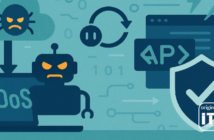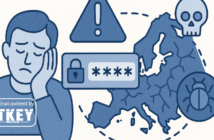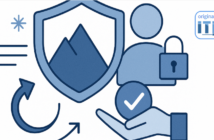The post was originally published in Polish on Szymon’s LinkedIn profile. Szymon kindly agreed to republish what we think is of great value to our readers.
My first fundraising for a startup in Silicon Valley was a long and painful series of failures. I thought I already knew something because I had experience with Polish venture capital, but these processes were so different I couldn’t believe it. Thanks to my experience in combat, I managed to learn some valuable lessons from it.

Szymon Janiak, Co-Founder and Managing Partner at Czysta3.VC
First of all, the pitch deck. The first version was over 100 pages long and it seemed to us at the time that a lot was missing in it. It turned out that we were operating in an information bubble – not only were a lot of these things insignificant, but the important ones were prepared in a way that was hardly understandable to investors. It took several iterations to arrive at a formula that was virulent.
Secondly, the structure. Fundraising for a Polish company was an absolutely bad idea. Some investors still thought that bears were running on city streets in Poland, so what is the stability of the legal system? We had to incorporate in the States ASAP, and our new American company became the parent company of the Polish development entity.
Thirdly, intellectual property. Given that it was a technological project, any attempts to reserve intellectual property in our area were not very attractive to investors. We had to apply for patent applications in the US and only then did their perception change.
Fourthly, reaching the funds. We tried to apply to the best: A16z, Sequoia, First Round Capital. Unfortunately, firstly, finding contact details for them was hellishly difficult, and secondly, practically none of them responded. Everything changed when a person from the local market joined our office in Silicon Valley to make a warm intro for us. It was then that a number of prospective talks actually began.
Fifthly, patience. There were dozens of applications, we regularly flew somewhere – to the US, China, Sweden – wherever we could talk to investors. We were able to sign the term sheet only after slightly under a year! The first one was a VC from NY.
Sixthly, visibility. It was difficult for us to talk when it was difficult to find anything about us. However, when we appeared in Wired magazine, Gartner wrote about us as a promising technology, and the Bluetooth SIG itself gave us an award – talks with investors began to go much more confidently.
If I were to sum it up by wondering what was really most important – I would say that if we have a company that has done something amazing enough to be interested in VC and it fits in with investment trends – the network was crucial. A single person and their recommendations opened much more doors for us than hundreds of cold emails. Yet another proof that people are key.
The comment section had to add:
In the USA, people are appreciated more than ideas. That’s how I see it. Without a network, you won’t get to know the right people and you won’t know enough about them to take an informed risk. Everyone in here looks – I generalize – through the prism of capitalization, forgetting that it is a particular person, a team that will be responsible for delivering results.
– Szymon Kapturkiewicz, CEO at InterSynergy

Szymon Janiak is an investor and a business-driven Managing Director at czysta3.vc, a Venture Capital fund located in Poland. He has over 10 years of experience in the technology sector. Szymon is also a Member of the Supervisory Board at stockbroker Grupa Trinity S.A.




